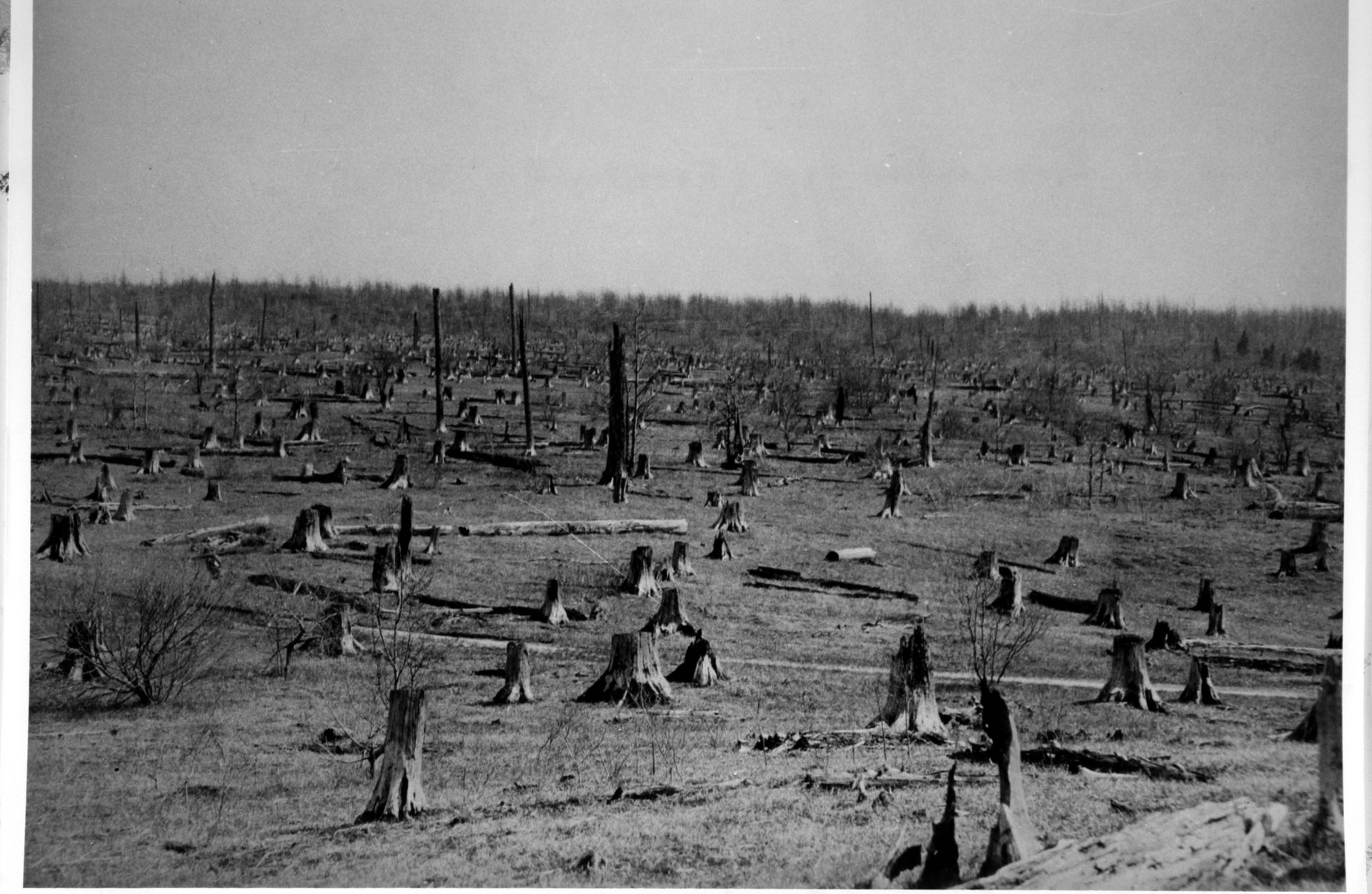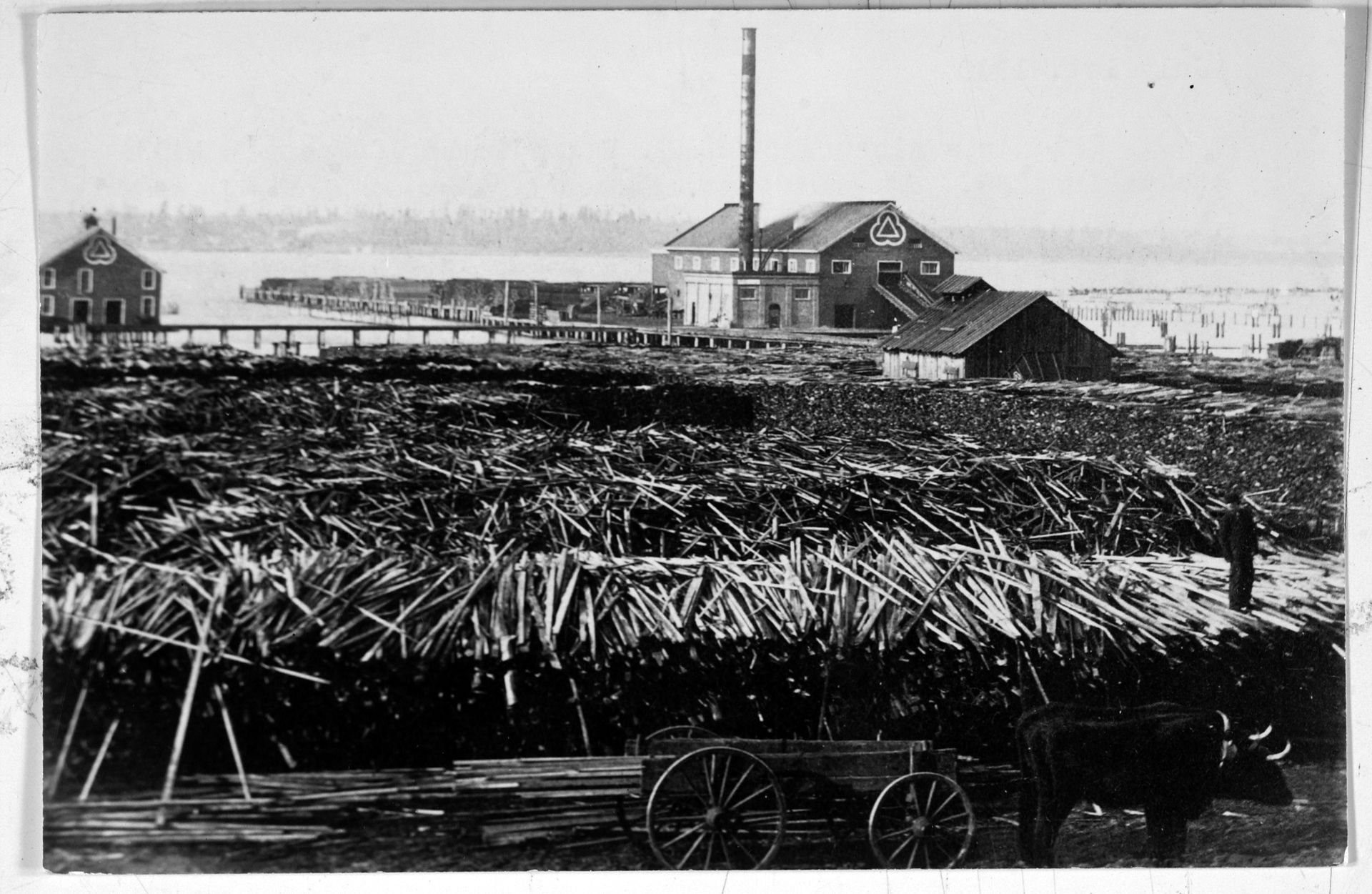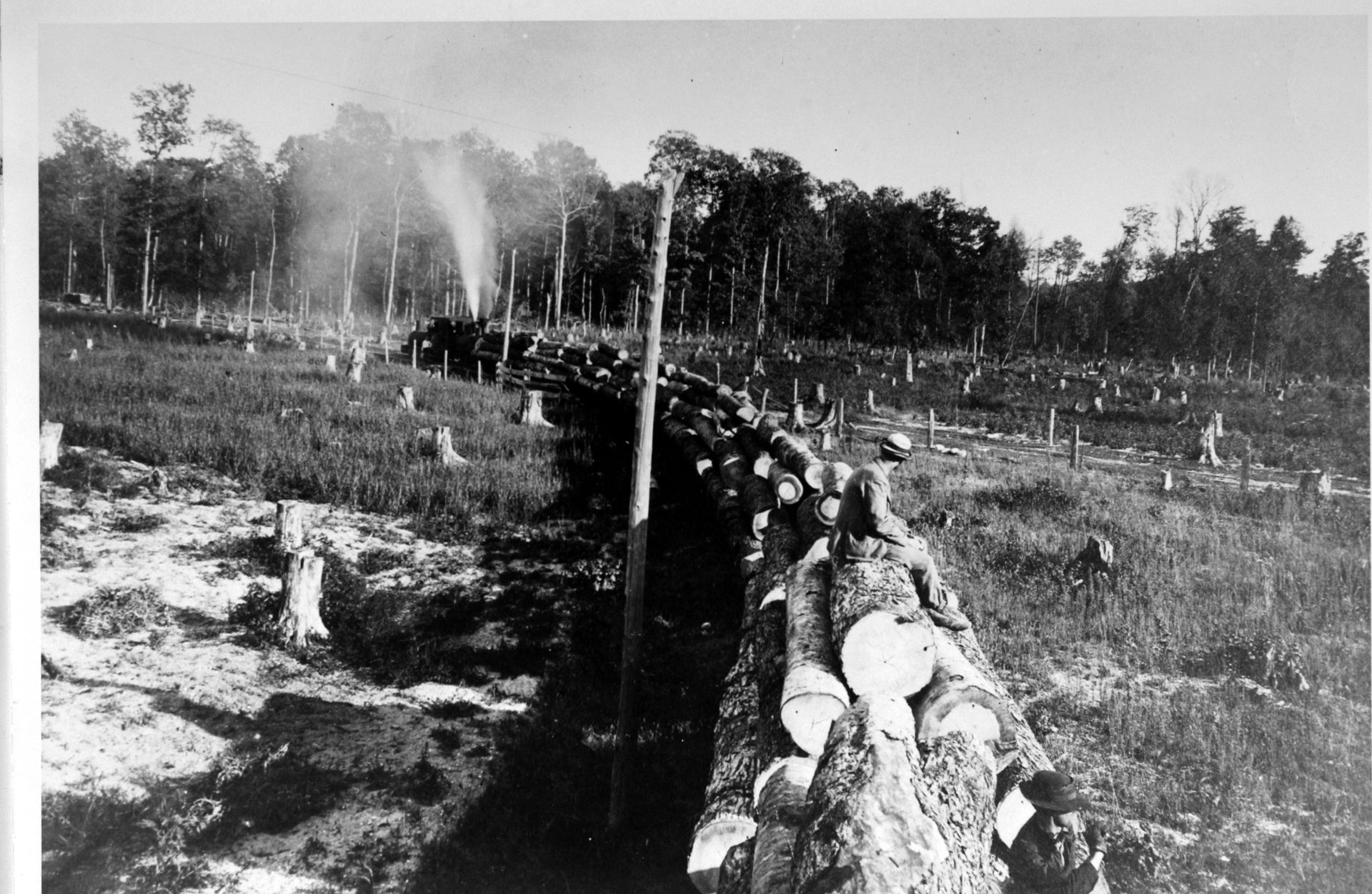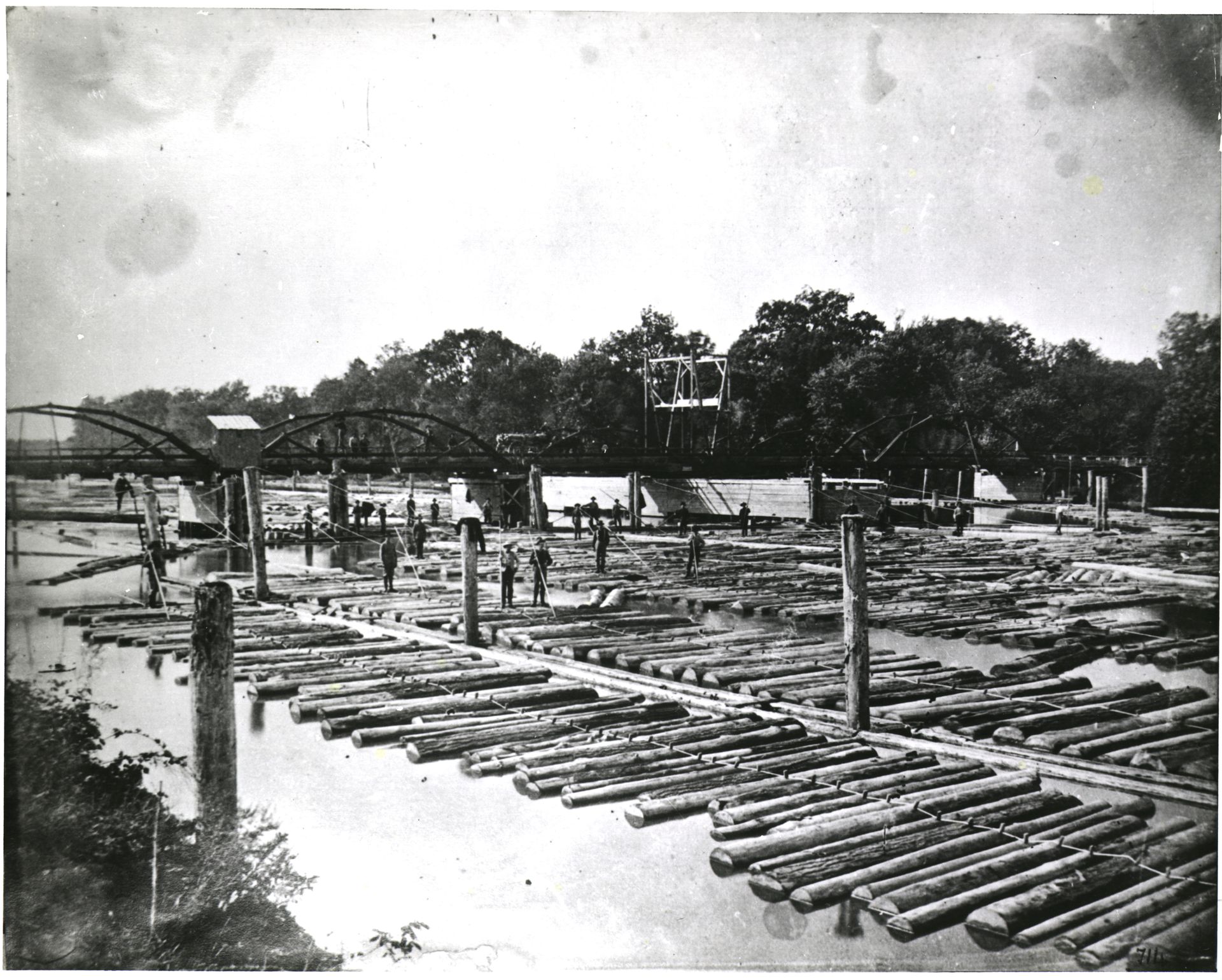The Legacy of Michigan Logging
With Earth Day this week on April 22nd, many people are acting by volunteering in their communities to help our native ecosystems. The efforts behind this day often benefit the planet and can include anything from tree planting to clean-up efforts, like in our Annual Clinton River clean-up, which took place this past weekend. This day is an important step in communities recognizing their role in being environmental stewards. Moreover, Michigan has a rich history with natural resources, particularly logging, which can be a driver for many tree plantings that take place in the state around Earth Day. Annual tree plantings like this help create regeneration of staggered age stands to benefit a multitude of species that rely on variation. For example, our On the Ground program works with the Kirtland Warbler Association and Huron Pines to host an annual jack pine planting day, which helps stagger the age of these stands. The once-endangered Kirtland’s warblers rely on these plantings alongside natural regeneration as they thrive in stands that are 5 to 15 feet tall, according to All About Birds. This is only one example of hundreds demonstrating the benefits our ecosystem gains from combined efforts, both statewide and nationally, on Earth Day.
Historically, Michigan experienced a lumber era in which the state was a leading producer for 50 years starting in 1860. The forests were cut down to make way for development and create profit for settlers in the area. The state tree, white pine, was the main target of loggers due to its buoyancy and lumber qualities, according to Michigan State University (MSU) Extension. Due to the reliance on floating logs, logging was seen as a winter job to make transport easier on sleds by oxen to the rivers waiting for the thaw. The mass harvest of trees was done strategically, using moving water to transport the logs to their next processing stage, sawmills. Saginaw is recognized by the Center for Michigan History Studies as a hot spot for these mills, as this area has six converging rivers that come from around the state. It is estimated that there were over 160 billion board feet logged from Michigan alone by 1897, meanwhile, there is currently only about 70 billion board feet in the state today.
After the logging era, MSU Extension states many crop farmers came in to claim the land while settlers would use fire to clear lumber remnants. However, these conditions also paved the way for forest fires in the late 1800s to early 1900s in which over four million acres burned across the state. In the wake of this, profit and destruction came the drive for the Conservation Era, in which citizens considered the future of the state’s forest for the next 40 years. By 1937, Michigan United Conservation Clubs was established to conserve, protect, and defend the state’s natural resources, joined by individuals and clubs across the state.
Today, Michigan United Conservation Clubs (MUCC) persists in seeing through the incessant need for conservation across the state. This organization works to conserve, protect, and enhance Michigan’s Natural Resources and outdoor heritage through advocacy, communication, education, and habitat work. If you are passionate about conservation and the natural resources in Michigan, consider becoming a member of MUCC and joining our fight for conservation. If you want to take conservation action, consider joining us at our upcoming tree planting in Port Huron State Game Area on May 10th or one of our other projects.
Recent Posts







